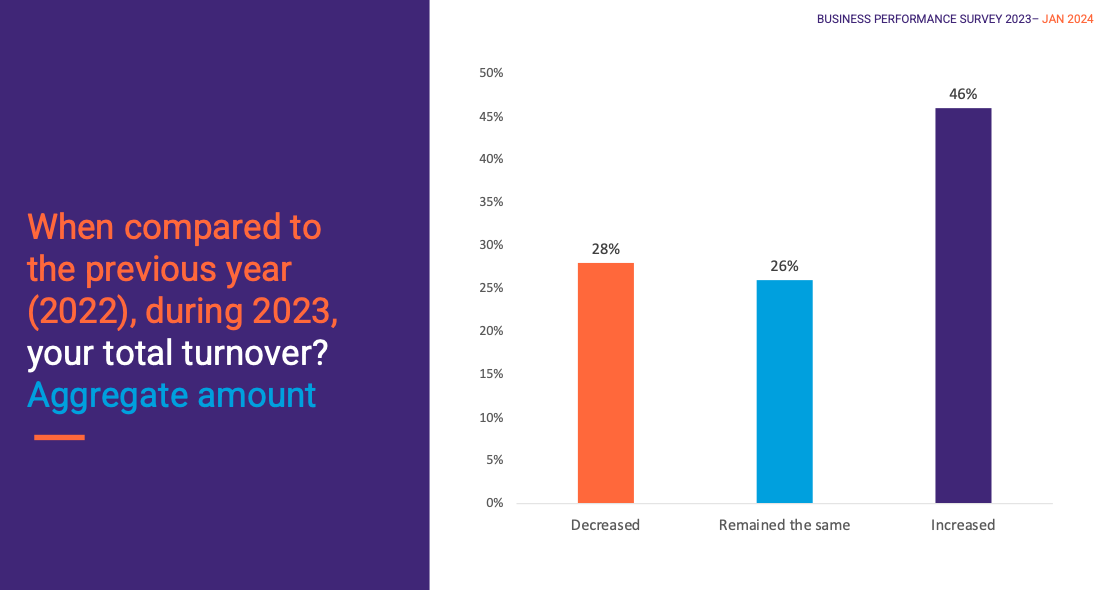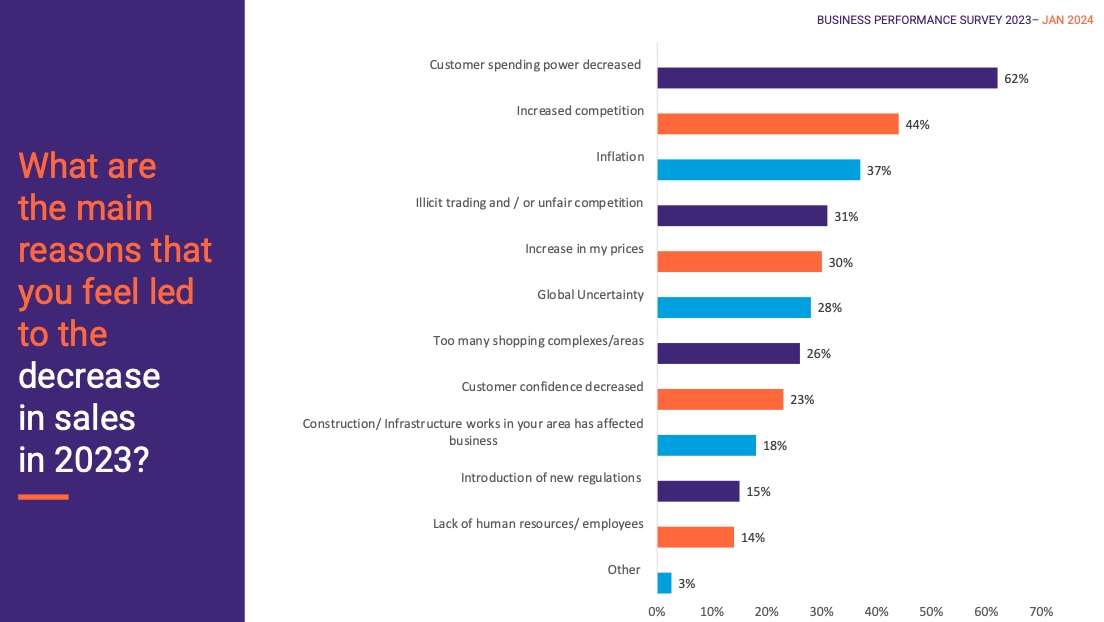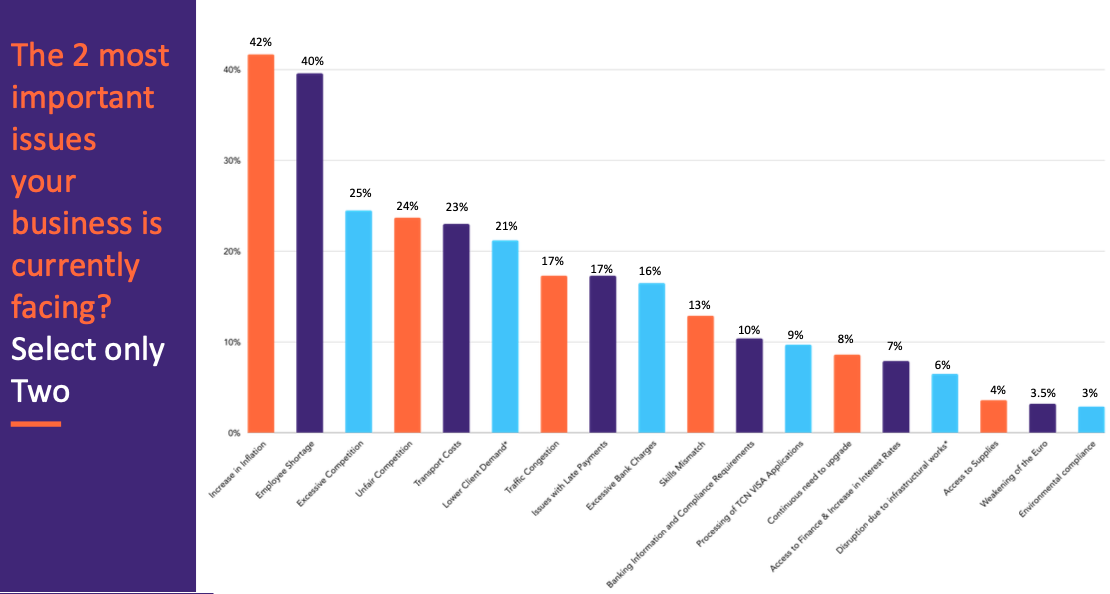Malta Chamber of SMEs proposes once again to Reducing VAT from 18% to 15% on all goods and services to tackle inflation and to lower tax for businesses

The Malta Chamber of SMEs conducted the annual Business performance survey for 2023 as part of the SME Barometer® in collaboration with Misco Malta.
The press conference was addressed by SME Chamber President Mr Paul Abela, Deputy President Mr Philip Fenech, CEO Ms Abigail Agius Mamo and Misco Malta Director Mr Lawrence Zammit.
The survey, which included 283 respondents, was carried out between the 12th and 23rd of January 2024.
46% of these respondents said that they employ between 1 and 9 employees.

When compared to 2022, 46% of the respondents said that turnover increased in 2023 while 28% said that turnover decreased and 26% replied that turnover remained the same.
Businesses said that the main reasons to the increase in sales in 2023 include better sales strategies, increased brand presence and more stability among others.
62% replied that customer spending power was one of the main reasons that led to the decrease in sales in 2023. This followed by 44% due to increased competition and 37% due to inflation.

When replying to how profitable was their business as apposed to the previous year, 40% of the respondents said that it was less profitable, 26% said that it’s more profitable and 34% replied that profits remained the same.
63% said that the main causes of price increases are employee wage and salary costs. The cost of products coming from abroad and transport costs (freight costs) were the second and third causes according to respondents.

The Malta Chamber of SMEs President Mr Paul Abela said that in the face of escalating inflation, businesses are making concerted efforts to absorb the impact to maintain sales levels.
Mr Abela said that the challenges, including persistent employee wage and salary costs, along with rising costs of imported goods, have prompted calls for urgent government action to address issues of unfair competition and governance.
Abela insisted that despite increased efforts to boost sales and turnover, businesses are grappling with a continued decrease in overall profits. Inflation has emerged as the top concern for businesses and the country at large, surpassing issues like employee shortages. The prevailing uncertainty in the business landscape is hindering further investment, concluded Mr Paul Abela..
Misco Malta Director Mr Lawrence Zammit said that responding to the growing concerns, business leaders emphasise that the real cost of doing business in Malta is on the rise. Local factors are identified as key contributors to price increases within businesses.
Malta Chamber of SMEs CEO Ms Abigail Agius Mamo said that in light of these challenges, there is a pressing need for government intervention to ensure that political decisions do not exacerbate inflationary pressures. Proposals have been put forward to address these issues and foster economic stability:
Advocating for a reduction in VAT from 18% to 15% on all goods and services to counteract inflation, aiming to stabilise prices while maintaining revenue.
Calling for a lower tax rate for businesses to foster a level playing field among enterprises operating in Malta.
Proposing an extension of the validity of work permits for employees earning over €25,000 from one year to two years to promote stability and workforce retention.
Urging the removal of SISA/EXCISE TAX (hidden Tax) from everyday consumer goods, including water, non-alcoholic beverages, personal care products, and more. This move supports local production, manufacturing, and enhances economic stability.
Advocating for the execution of a medium to long-term economic plan to provide businesses with a clear roadmap for sustained growth.
Seeking government support for businesses to address insularity issues and enhance competitiveness.
-
Public Procurement Reform:
Urging the reform of Malta’s public procurement infrastructure to ensure transparency and good governance at a national level.
The Malta Chamber of SMEs emphasises on the importance of collaboration between the private sector and the government to navigate these economic challenges successfully. These proposed measures aim to not only alleviate immediate concerns but also lay the groundwork for a resilient and competitive business environment in Malta.



















